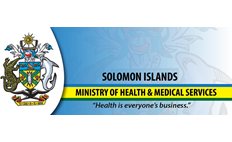Publications
A framework for scabies control
Recommendations from the WHO Informal Consultation for scabies control strategies, including mapping of disease burden, delivery of interventions, and establishing monitoring and evaluation. Key operational research priorities are also identified.
Engelman D, Marks M, Steer AC, Beshah A, Biswas G, Chosidow O, et al. (2021) A framework for scabies control. PLoS Negl Trop Dis 15(9):e0009661. https://doi.org/10.1371/journal.pntd.0009661
The public health control of scabies: priorities for research and action.
Engelman D, Cantey PT, Marks M, Solomon AW, Chang AY, Chosidow O, et al. The public health control of scabies: priorities for research and action. Lancet. 2019;394:81–92. https://www.thelancet.com/journals/lancet/article/PIIS0140-6736(19)31136-5/fulltext
Consensus criteria for the diagnosis of scabies: A Delphi study of international experts.
Engelman D, Fuller LC, Steer AC, Panel for the International Alliance for the Control of Scabies Delphi panel. Consensus criteria for the diagnosis of scabies: a Delphi study of international experts. PLoS Negl Trop Dis. 2018;12:e0006549. https://journals.plos.org/plosntds/article?id=10.1371/journal.pntd.0006549
Toward the global control of human scabies: introducing the International Alliance for the Control of Scabies.
Engelman D, Kiang K, Chosidow O, McCarthy J, Fuller C, Lammie P, et al. Toward the global control of human scabies: introducing the International Alliance for the Control of Scabies. PLoS Negl Trop Dis. 2013;7:e2167. https://www.ncbi.nlm.nih.gov/pmc/articles/PMC3738445/
Prevention of bacterial complications of scabies using mass drug administration: A population-based, before-after trial in Fiji, 2018–2020
A before-after trial in the Northern Division of Fiji (population: 131,914) of mass drug administration for scabies control. Prospective surveillance was conducted from 2018 to 2020. Mass drug administration took place in 2019, involving two doses of oral ivermectin or topical permethrin, delivered alongside diethylcarbamazine and albendazole for lymphatic filariasis. The research concluded mass drug administration for scabies control was associated with a substantial reduction in hospitalisations for skin and soft tissue infections. Specifically, the incidence of hospitalisations with skin and soft tissue infections was 17% lower after the intervention compared to baseline.
Li Jun Thean, Lucia Romani, Daniel Engelman et al. Prevention of bacterial complications of scabies using mass drug administration: A population-based, before-after trial in Fiji, 2018–2020.
Lancet Regional Health - Western Pacific. 2022; 22 :2666-6065 https://doi.org/10.1016/j.lanwpc.2022.100433
Can ivermectin mass drug administrations to control scabies also reduce skin and soft tissue infections? Hospitalizations and primary care presentations lower after a large-scale trial in Fiji
Jo Middleton has written an editorial about the before-after trial in the Northern Division of Fiji (population: 131,914) of mass drug administration for scabies control conducted from 2018 to 2020.
Jo Middleton, Can ivermectin mass drug administrations to control scabies also reduce skin and soft tissue infections? Hospitalizations and primary care presentations lower after a large-scale trial in Fiji.
Lancet Regional Health - Western Pacific, 2022; 22,100454 https://doi.org/10.1016/j.lanwpc.2022.10045
Mass drug administration for the control of scabies: a systematic review and meta-analysis
A systematic review and meta-analysis of reports on the impact of mass drug administration on scabies and impetigo. Includes randomized control trials and observational evaluations reported from January 1970 to April 2021 and involving human participants. Authors searched PubMed, Ovid Medline, Embase, and Cochrane. Considered MDA as treatment intended for the whole population, regardless of individual infection status or symptoms. The main outcome assessed was the change in scabies and impetigo prevalence following mass drug administration.
Lake, S. J., Kaldor, J. M., Hardy, M., Engelman, D., Steer, A. C., & Romani, L. Mass drug administration for the control of scabies: a systematic review and meta-analysis. Clin Infect Dis, 2022 https://doi.org/10.1093/cid/ciac042
Costs of mass drug administration for scabies in Fiji
The economic burden of scabies has not been studied widely and there are limited data on the cost of treating scabies in highly endemic areas. Researchers conducted a costing study of a mass drug administration (MDA) program in the Northern Division of Fiji (population of 131,914). They collected financial and economic costs of administering ivermectin and permethrin to the whole of the Northern Division population in order to estimate the per capita cost of delivering MDA. The study highlights significant cost components of implementing a large-scale MDA and provides key insights for the design and implementation of future MDA programs for scabies. It also adds to the general knowledge in understanding cost inputs and estimating the overall cost-effectiveness of this public health intervention.
Mow M, Thean LJ, Parnaby M, Mani J, Rafai E, Sahukhan A, et al. (2022) Costs of mass drug administration for scabies in Fiji. PLoS Negl Trop Dis. 2022;16:(2) e0010147. https://doi.org/10.1371/journal.pntd.0010147
Mass drug administration for scabies control in a population with endemic disease
Mass Drug Administration (MDA) program in Fiji involving 2051 participants across three island communities, each community receiving a different treatment arm. Primary outcome was the change in the prevalence of scabies and impetigo from baseline to 12 months. Results concluded that MDA, particularly ivermectin, was efficacious.
Romani L, Whitfeld MJ, Koroivueta J, Kama M, Wand H, Tikoduadua L, et al. Mass drug administration for scabies control in a population with endemic disease. N Engl J Med. 2015;373:2305–13 https://www.nejm.org/doi/full/10.1056/nejmoa1500987
Mass Drug Administration for Scabies – 2 Years of Follow-up
24 month follow up survey of the previous MDA program conducted to determine the durability of a single round of MDA. The survey found that ivermectin-based MDA is efficacious in reducing prevalence of scabies from baseline to 24 months. Researchers call for evaluation of MDA in larger, less isolated populations to extend their findings.
Romani L, Whitfeld MJ, Koroivueta J, Kama M, Wand H, Tikoduadua L, Tuicakau M, Koroi A, Andrews RM, Kaldor JM, Steer AC. Mass Drug Administration for Scabies - 2 Years of Follow-up. N Engl J Med. 2019 Jul 11;381(2):186-187. doi: 10.1056/NEJMc1808439. PMID: 31242358 https://www.nejm.org/doi/10.1056/NEJMc1808439
Efficacy of mass drug administration with ivermectin for control of scabies and impetigo, with coadministration of azithromycin: a single-arm community intervention trial.
MDA study involving azithromycin (for trachoma) and ivermectin, offered to an entire island population in Solomon Islands (>26,000), with two sets of ten sentinel villages selected for monitoring over 12 months. Results concluded that ivermectin-based MDA can be scaled and integrated with azithromycin to a population of over 25,000 with high efficacy.
Romani L, Marks M, Sokana O, Nasi T, Kamoriki B, Cordell B, Wand H, Whitfeld MJ, Engelman D, Solomon AW, Kaldor JM, Steer AC. Lancet Infect Dis. 2019 May;19(5):510-518. doi: 10.1016/S1473-3099(18)30790-4. PMID: 30956111. https://www.thelancet.com/journals/laninf/article/PIIS1473-3099(18)30790-4/fulltext
Prevalence of scabies and impetigo three years after mass drug administration with ivermectin and azithromycin.
36 month follow up survey of the integrated MDA program in Solomon Islands, concluded that a single round of ivermectin/azithromycin MDA had a sustained impact on scabies and impetigo prevalence 3 years post intervention.
Marks M, Romani L, Sokana O, Neko L, Harrington R, Nasi T, Wand H, Whitfeld MJ, Engelman D, Solomon AW, Kaldor JM, Steer AC. Clin Infect Dis. 2019 May 25. pii: ciz444. doi: 10.1093/cid/ciz444. PMID: 31131410. https://europepmc.org/article/med/31131410
Feasibility and safety of mass drug co-administration with azithromycin and ivermectin for the control of neglected tropical disease: a single-arm intervention trial.
Evaluation of safety and feasibility of the above MDA trial, finding that the combination of ivermectin/azithromycin in MDA on a population of over 25,000 was safe and feasible.
Romani L, Marks M, Sokana O, Nasi T, Kamoriki B, Wand H, et al. Feasibility and safety of mass drug co-administration with azithromycin and ivermectin for the control of neglected tropical diseases: a single-arm intervention trial. Lancet Glob Health. 2018;6:e1132–8. https://pubmed.ncbi.nlm.nih.gov/30223985/
The safety of combined triple drug therapy with ivermectin, diethylcarbamazine and albendazole in the neglected tropical disease co-endemic setting of Fiji: A cluster-randomised trial.
MDA comparison in Fiji involving treatment with combination of diethylcarbamazine and albendazole (established treatment for lymphatic filariasis) and combination of ivermectin, diethylcarbamazine, and albendazole. Entire island community offered treatment and randomised to either group. The addition of ivermectin to the established 2-drug treatment was found to be safe.
Myra Hardy, Josaia Samuela, […] John M. Kaldor, Andrew C. Steer. The safety of combined triple drug therapy with ivermectin, diethylcarbamazine and albendazole in the neglected tropical diseases co-endemic setting of Fiji: A cluster randomised trial, https://journals.plos.org/plosntds/article?id=10.1371/journal.pntd.0008106
Control of scabies, skin sores and haematuria in children in the Solomon Islands: Another role for ivermectin
MDA program with ivermectin treatment almost all residents of 5 small islands in the Solomon Islands. Results showed that ivermectin was effective and practical in controlling scabies, as well as reducing the occurrence of streptococcal skin disease. Researchers called for the integration of scabies control programs with filariasis/intestinal nematodes control methods.
Lawrence G, Leafasia J, Sheridan J, Hills S, Wate J, Wate C, et al. Control of scabies, skin sores and haematuria in children in the Solomon Islands: another role for ivermectin. Bull World Health Organ. 2005;83:34–42. https://pubmed.ncbi.nlm.nih.gov/1673175/
Estimation of scabies prevalence using simplified criteria and mapping procedures in three Pacific and southeast Asian countries.
Tsoi SK, Lake SJ, Thean LJ, Matthews A, Sokana O, Kama M, Amaral S, Romani L, Whitfeld M, Francis JR, Vaz Nery S, Marks M, Kaldor JM, Steer AC, Engelman D. BMC Public Health. 2021 Nov 10;21(1):2060. https://pubmed.ncbi.nlm.nih.gov/34758806/
Defining the need for public health control of scabies in Solomon Islands
Lake SJ, Engelman D, Sokana O, Nasi T, Boara D, Grobler AC, et al. Defining the need for public health control of scabies in Solomon Islands. PLoS Negl Trop Dis 2021;2: e0009142. https://doi.org/10.1371/journal.pntd.0009142
Prevalence of scabies and impetigo worldwide: a systematic review
Romani L, Steer AC, Whitfeld MJ, Kaldor JM. Prevalence of scabies and impetigo worldwide: a systematic review. Lancet Infect Dis 2015; 15: 960–67. https://doi.org/10.1016/S1473-3099(15)00132-2. https://www.thelancet.com/journals/laninf/article/PIIS1473-3099(15)00132-2/fulltext
Scabies and impetigo prevalence and risk factors in Fiji: a national survey
Romani L, Koroivueta J, Steer AC, et al. Scabies and impetigo prevalence and risk factors in Fiji: a national survey. PLoS Negl Trop Dis. 2015;9(3):e0003452. Published 2015 Mar 4. doi:10.1371/journal.pntd.0003452. https://journals.plos.org/plosntds/article?id=10.1371/journal.pntd.0003452
The global burden of scabies: a cross-sectional analysis from the Global Burden of Disease Study 2015
Karimkhani C, Colombara DV, Drucker AM, Norton SA, Hay R, Engelman D, et al. The global burden of scabies: a cross-sectional analysis from the Global Burden of Disease Study 2015.Lancet Infect Dis. 2017;17:1247–54. https://www.thelancet.com/journals/laninf/article/PIIS1473-3099(17)30483-8/fulltext





